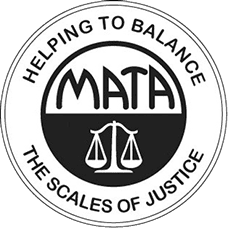Power Plant
Workers
At Risk Occupations
Power Plant Workers & Asbestos Exposure
Occupational Asbestos Exposure for Power Plant Workers
Prior to the late 20th century, power plants and other facilities that generated electricity were riddled with asbestos because it could withstand the demands of industrial energy production. Unfortunately, workers in these plants were routinely exposed to harmful asbestos fibers that increased their risks of developing diseases like mesothelioma and lung cancer years later.
If you or someone you love was diagnosed with mesothelioma or another asbestos-related disease, past work in a power plant, power station, or other industrial occupation involved in power generation may allow you to seek compensation for your losses.
SWMW Law is an award-winning plaintiffs trial practice with a reputation for championing the rights of asbestos exposure victims nationwide. Backed by more than 100 years of cumulative experience, we’ve recovered millions of dollars in compensation for workers in power plants, chemical plants, industrial facilities, and other at-risk occupations, securing victories against some of the country’s largest corporations and insurance carriers in the process. If you have a potential case, we can help.
Learn how past employment in a power plant could provide the basis for your mesothelioma or asbestos exposure claim. Call (855) 744-1922 or contact us online for a FREE consultation.
How Power Plant Workers Were Exposed to Asbestos
For power plants and their elaborate systems – which generate, store, and distribute power by converting primary energy sources (such as nuclear energy, thermal energy, and oil, coal, and natural gas) into electricity – asbestos was for decades seen as a necessity because it enabled equipment to withstand the constant and corrosive demands of energy production.
As such, asbestos was used widely in power plants across the U.S. for most of the 20th century and could be found in everything from the floors, ceilings, and building materials that surrounded workers to the insulation, piping, boilers, and heavy equipment they operated and handled daily.
Unfortunately, the prevalence of asbestos-containing materials in power plants meant nearly all workers in these facilities were likely exposed to asbestos – especially if they worked in plants prior to the 1980s, when the U.S. began restricting the use of asbestos, or in aging facilities that still contained asbestos-laden products well into the 21st century.
But while exposure risks were broad, workers with certain duties or occupations may have faced more pronounced risks than others. This includes workers who directly installed, repaired, or operated equipment and systems lined with asbestos insulation and other asbestos-containing components. Workers who sawed, cut, removed, replaced, or otherwise disturbed asbestos-containing materials, and those who replaced or repaired degraded materials that contained asbestos, also faced significant risks. This is because their work would have unknowingly dispersed harmful asbestos fibers into the air where they could be inhaled or ingested.

Plumbers, pipefitters , and other power plant workers who installed, repaired, and operated piping systems lined with asbestos insulation and asbestos-laden solvents.

Electricians and engineers who worked on electrical systems that required them to work with or cut through asbestos-containing materials.

Boilermakers who installed, repaired, and operated boilers and other vessels filled with insulation, pumps, gaskets, and valves that contained asbestos.

Insulators, millwrights, and construction workers, who helped erect, build, and maintain industrial power stations and their essential systems, including turbines and generators.

Mechanics and maintenance workers cut, sawed, and repaired various parts of power plants that contained asbestos or otherwise worked on or cleaned equipment and facilities filled with toxic asbestos dust.
But while exposure risks were broad, workers with certain duties or occupations may have faced more pronounced risks than others. This includes workers who directly installed, repaired, or operated equipment and systems lined with asbestos insulation and other asbestos-containing components. Workers who sawed, cut, removed, replaced, or otherwise disturbed asbestos-containing materials, and those who replaced or repaired degraded materials that contained asbestos, also faced significant risks. This is because their work would have unknowingly dispersed harmful asbestos fibers into the air where they could be inhaled or ingested.
Unfortunately, exposure risks also extended to families and others who lived with power plant workers. As studies have shown, people who lived with workers in asbestos-related industries have higher rates of malignant mesothelioma than the general population. This is due to secondary exposure, which occurs when workers exposed to asbestos on the job bring fibers into their homes on their clothing, skin, and equipment. One 1978 study found that marriage to an asbestos-exposed worker was the single greatest risk factor for developing mesothelioma apart from occupational exposure.
Sources of Asbestos Exposure in Power Plants
Found in everything from essential equipment and machinery to power station structures themselves, asbestos at one time played a critical role in the systems that powered our society. However, this meant that workers in power plants and other energy production occupations faced constant risks of being exposed to asbestos-containing products.
Power plant workers may have been exposed to a variety of asbestos-containing products, including:

Thermal Pipe and Block Insulation

Boilers

Valves

Gaskets

Protective Equipment

Insulating Boards and Blankets

Pumps

Steam Traps

Packing

Insulating and Refractory Cement Firebrick
"At SWMW Law, people really do matter."
- Lois M.
"My deepest gratitude to the attorneys and everyone who are working on my husband’s case for him."
- Jeanne M.
"Thank you for calling just to check on me. You don’t know how much that means to me."
- John L.
"At SWMW Law, people really do matter."
- Lois M.
"My deepest gratitude to the attorneys and everyone who are working on my husband’s case for him."
- Jeanne M.
"At SWMW Law, people really do matter."
- Lois M.
"My deepest gratitude to the attorneys and everyone who are working on my husband’s case for him."
- Jeanne M.

A 2015 study published in the Occupational Environmental Medicine journal found industrial workers, including those in energy production, are 4x more likely to develop pleural mesothelioma than people who did not perform industrial jobs. Pleural mesothelioma , which forms in the lining of the lungs, is the most common form of asbestos-related cancer.

A pair of studies published in 2019 found high rates of mesothelioma and asbestosis among U.S. nuclear power plant workers and excess deaths from those diseases among construction and trades workers employed by the U.S. Department of Energy.

A 1995 study published in the American Journal of Industrial Medicine found increased rates of mesothelioma and lung cancer among workers in Italian thermoelectric power plants.

A 1979 study from the Annals of the New York Academy of Sciences assessed asbestos exposure risks in an electricity-generation power station found a considerable presence of airborne asbestos fibers in sampled air, as well as various signs of exposure among power plant workers, including pleural thickening, pleural calcification, and other respiratory symptoms.

Asbestos trust fund claims Power plant workers and their families may have grounds to seek compensation through special trust funds that were established when companies that knowingly made asbestos-containing products reorganized or went out of business in bankruptcy.

Personal injury or wrongful death claims. Depending on the circumstances, power plant workers and surviving relatives of deceased workers may be able to pursue civil claims against solvent companies that negligently manufactured, distributed, or otherwise exposed workers to asbestos. As with asbestos trust fund claims, civil claims require plaintiffs to prove their history of exposure.
Asbestos companies knew for decades that their products were dangerous but continued to make and distribute a variety of asbestos-containing products without adequately warning the consumers and workers who handled them. By pursuing civil or trust fund claims, victims have a powerful opportunity to hold these companies accountable and recover the compensation they deserve.
Whether it is a trust fund claim or civil claim, our team at SWMW Law conducts meticulous investigations to help clients prove their exposure history and the scope of their losses and works tirelessly to position them for the maximum compensation possible.
Depending on the facts of your case, you may be entitled to compensation for:

Past medical bills

Future medical expenses

Lost wages or lost financial support

Lost wages or lost financial support

Loss of consortium and emotional injuries

Other economic and non-economic losses






Examples of Our Results
SWMW Law has cultivated a record of success litigating high stakes asbestos claims on behalf of power plant workers, families, and victims who worked in other at-risk industries. We’ve taken on some of the nation’s most powerful corporations and insurance carriers and have helped clients nationwide in the fight for justice and fair compensation.

$9.7 million trial verdict for a victim diagnosed with mesothelioma caused by take-home exposure.

$7.5 million settlement for a union pipefitter diagnosed with mesothelioma.

$3.4 million settlement for a Missouri maintenance and heavy equipment mechanic diagnosed with mesothelioma.

$3 million settlement for a Texas industrial electrician/construction laborer diagnosed with mesothelioma.
Call For a FREE Consultation: (855) 744-1922
Power plant workers held invaluable jobs that helped power our society and progress as a nation but many paid the ultimate price due to their occupational exposure to asbestos. At SWMW Law, we’re devoted to helping these workers and their families fight for justice.
If you or someone you love was diagnosed with mesothelioma, lung cancer, or another asbestos disease after working at a power plant or in the energy production industry, SWMW Law can help explore your options for securing compensation. Backed by decades of experience and over $750 million in verdicts and settlements, we have the insight and resources to handle these claims.
SWMW Law services victims nationwide and offers FREE consultations. Call (855) 744-1922 or contact us online to request yours.



Because We Are Different.

Decades of Cumulative Experience
Our team is comprised of dozens of highly talented and experienced attorneys ready to fight for your best outcome.

Thousands of Clients Represented
Over the course of our firm's experience, we have helped thousands of victims and their families recover.

National Reach
We come to you wherever you are in the United States to help you and your family recover.

Resources + Personal Attention
A senior partner of our firm will be involved in your case, utilizing a team approach with massive resources uniquely applied to your case.
Free Consultations Available 24/7
Because
Justice Matters.
Whether you have questions or you’re ready to get started, our legal team is ready to help. Complete our form below or call us at (855) 744-2656.


